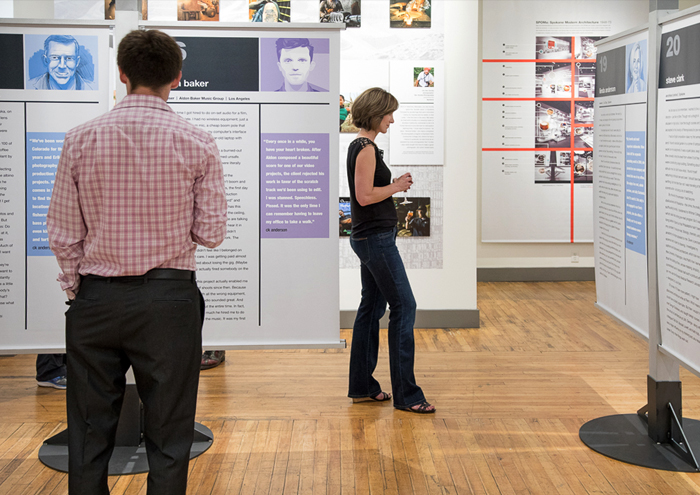I first heard of Bernard Perlin while researching WWII propaganda posters for our 1995 Behind the Red, White & Blue: Posters, Propaganda & Pride museum exhibit. I eventually called Bernard at his home in Ridgefield, Connecticut to inquire about him coming to Spokane as part of a speaker’s program related to the exhibit. He agreed. The problem was, he didn’t have any presentation materials, so I volunteered to have his work photographed (meaning I volunteered my good friend J. Craig Sweat).

A few days later, a box containing three sketchbooks arrived—books that had been stored away for more than 50 years. Dusty with mouse-bitten edges and aged, tea-stained pages, Bernard’s pencil sketches were amazing. I thought I’d received a time capsule—as if I were looking at never-before-seen artifacts. There was also a copy of the February 26, 1945 LIFE magazine, which contained an eight-page color spread featuring Bernard’s gouache paintings. Working as an artist correspondent for the magazine, he had been embedded with the Greek Sacred Squadron, a small group of former officers who operated as part of a covert British commando force fighting the Germans. Two of their harrowing raids were featured in the pages of that issue of LIFE.
We ended up filling a display case with Bernard’s sketchbooks and showcasing a few of his famous WWII posters in the exhibit. And his spellbinding presentation to members of the Spokane Advertising Federation was like listening to a real-life Forrest Gump.
Meeting Bernard Perlin here in Spokane quickly became one of my most treasured memories. Fortunately, the story doesn’t end with me driving him back to the airport. Tune into my next post to learn about our next meeting.


